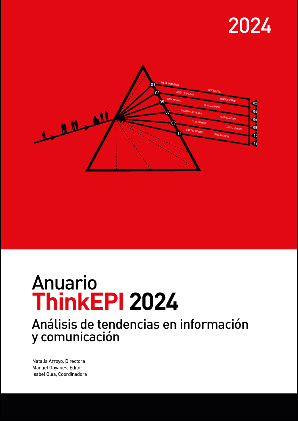The evolution of academic databases and their different paradigms
DOI:
https://doi.org/10.3145/thinkepi.2024.e18a03Keywords:
Scientific databases, Scholarly search engines, Citation indexes, Third-party based databasesAbstract
The aim of this entry is to take a tour through the different types of scholarly databases, and how they have been understood throughout the time according to their historical and technological contexts. We will review the origins of the first citation indexes, the appearance of academic search engines with the advent of the Web and conclude with the new databases based on third parties. In this way, we intend to show the current status of these different approaches and how they can respond to the current challenges of digitization and open science.Downloads
References
Bernal, John D. (1939). The social function of science. London: George Routledge & Sons.
De-Solla-Price, Derek J. (1963). Little science, big science. New York: Columbia University Press. ISBN: 978 0231918442
Delgado-Quirós, Lorena; Aguillo, Isidro F.; Martín-Martín, Alberto; Delgado López-Cózar, Emilio; Orduña-Malea, Enrique; Ortega, José-Luis (2024). “Why are these publications missing? Uncovering the reasons behind the exclusion of documents in free-access scholarly databases”. Journal of the Association for Information Science and Technology, v. 75, n. 1, pp. 43-58. https://doi.org/10.1002/asi.24839
Delgado-Quirós, Lorena; Ortega, José-Luis (2024). “Completeness degree of publication metadata in eight free-access scholarly databases”. Quantitative Science Studies. https://doi.org/10.1162/qss_a_00286
Garfield, Eugene (1979). Citation indexing its theory and application in science, technology and humanities. New York: Wiley. ISBN: 978 0894950254
Google Scholar (2024) Inclusion Guidelines for Webmasters. https://scholar.google.com/intl/es/scholar/inclusion.html#content
Jacsó, Peter (2005). “Google Scholar: the pros and the cons”. Online information review, v. 29, n. 2, pp. 208-214. https://doi.org/10.1108/14684520510598066
Jacsó, Peter (2008). Google scholar revisited. Online information review, v. 32, n. 1, pp. 102-114. https://doi.org/10.1108/14684520810866010
Liang, Liming; Rousseau, Ronald; Zhong, Zhen (2013). “Non-English journals and papers in physics and chemistry: Bias in citations?”. Scientometrics, n. 95, 333-350. https://doi.org/10.1007/s11192-012-0828-0
Martín-Martín, Alberto; Thelwall, Mike; Orduña-Malea, Enrique; Delgado-López-Cózar, Emilio (2021). “Google Scholar, Microsoft Academic, Scopus, Dimensions, Web of Science, and OpenCitations’ COCI: a multidisciplinary comparison of coverage via citations”. Scientometrics, v. 126, n. 1, pp. 871-906. https://doi.org/10.1007/s11192-020-03690-4
Orduña-Malea, Enrique; Martín-Martín, Alberto; Delgado-Lopez-Cozar, Emilio (2017). “Google Scholar as a source for scholarly evaluation: A bibliographic review of database errors”. Revista española de documentación científica. v. 40, n. 4. https://doi.org/10.3989/redc.2017.4.1500
Ortega, José-Luis (2014). Academic search engines: A quantitative outlook. Cambridge, UK: Chandos Publishing (Elsevier). ISBN: 978 1843347910
Rice, Randall G.; Bernier, Charles L.; Baker, Dale B. (1960). “Scientific abstracting and indexing services”. STWP Review, v. 7, n. 3, pp. 11–15. http://www.jstor.org/stable/43091061
Van-Leeuwen, Thed N.; Moed, Henk F.; Tijssen, Robert J.; Visser, Martijn S.; Van-Raan, Anthony F. (2001). “Language biases in the coverage of the Science Citation Index and its consequences for international comparisons of national research performance”. Scientometrics, n. 51, pp. 335-346. https://doi.org/10.1023/A:1010549719484
Weinatoek, Melvin (1971). “Citation indexes”. Encyclopaedia library and information science, 5, 16-40. http://www.garfield.library.upenn.edu/essays/V1p188y1962-73.pdf
Downloads
Published
How to Cite
Dimensions


